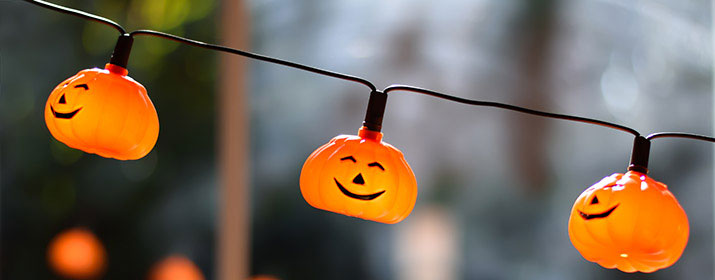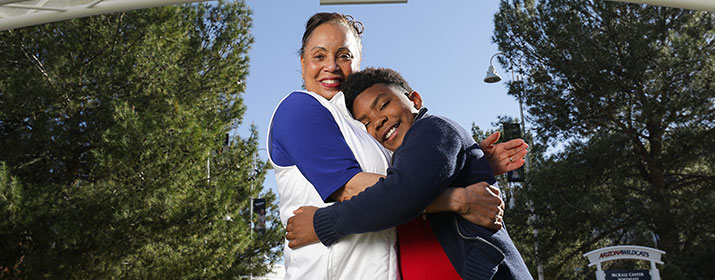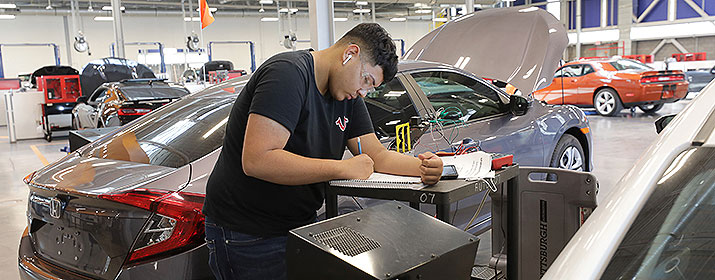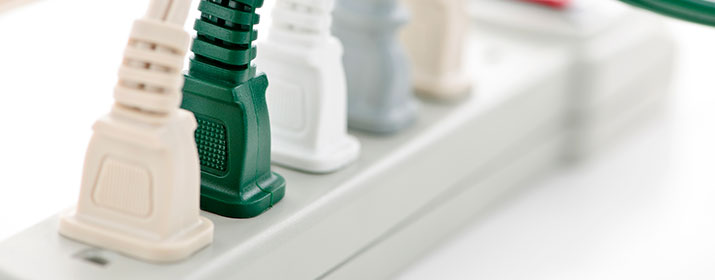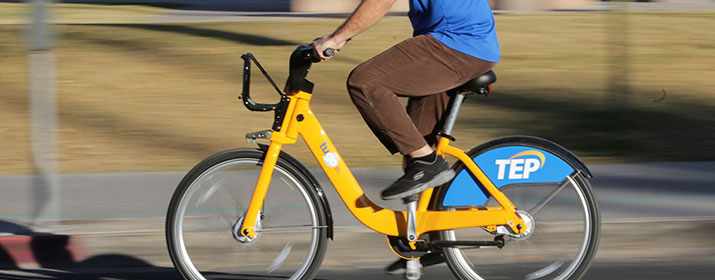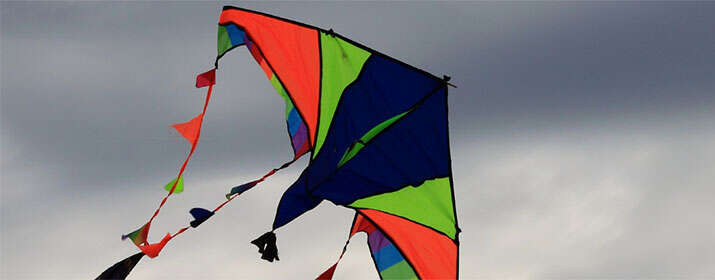
No one is more aware of electrical safety than our journeymen linemen. They work with electricity daily and need to keep safety top of mind at all times to ensure they return home safely to their families after a hard day’s work.
Kyle Studenski, Substation Crew Leader and 15-year Tucson Electric Power veteran, is one of several journeymen who routinely give demonstrations at public events using a small-scale replica city to teach customers and their kids about electrical safety. He shares some important reminders for avoiding electrical hazards when working or playing in and around your home this spring.
Call 811 before digging.
If you plan on digging, the law requires you to call 811 at least two working days before you break ground so that underground utility lines can be located and marked.
“Calling 811 isn’t just for developers and excavators who are doing major digging,” Studenski said. “It also applies to homeowners. Even if you’re doing shallow digging for planting shrubs and trees, be sure to call and have the lines marked before you dig.”
If there’s a chance that previously marked lines have been disturbed or moved, such as by heavy rains or vandalism it’s a good idea to have them marked again, Studenski said.
Look up and around.
Before using tall ladders, pool skimmers, extended electric trimming poles and other power equipment, look around to make sure you won’t make contact with power lines or equipment. Working on your antenna, satellite dish or rooftop air conditioning unit also may bring you near power lines. Always stay at least 15-feet away from them for your safety.
Stay away from downed power lines.
Severe storms and traffic accidents can topple utility poles and tear down lines. If you see a downed electrical line, stay away from it, don’t drive over it and call 911 immediately. Assume that all lines are energized and pose a danger, as you can’t tell otherwise just by looking.
“If you’re in your vehicle and a line falls on top of it, stay in the vehicle. Do not attempt to exit,” Studenski advised. “Remain in the vehicle until TEP crews arrive on scene and deenergize the line so that it won’t present a hazard.”
Know how to reset your breaker.
In advance of monsoon season when outages may occur, homeowners should know where their main circuit breaker is located and how to reset individual circuits or the main breaker. The breaker can be tripped by an electrical overload or surge, sometimes caused by lightning. If you lose power in just one part of your home, you may have tripped just one circuit. If you lose power throughout your home, it could be a trip in the master breaker or a local grid outage.
Trim with caution.
Homeowners are responsible for keeping branches at least 15 feet away from service lines that connect their homes to our electrical grid. Sometimes trees or shrubs on private property can grow near power lines, making them difficult to see. If limbs from your trees have grown into power lines, call TEP first at 520-623-7711 to ask that your electric service be suspended temporarily so you can trim safely. When trimming, make sure heavy limbs don’t fall onto any electrical equipment below, which could cause damage.
Play it safe.
Spring is a great time for kids to get out in the fresh air and play. But certain activities can be risky near our power lines. Keep children safe by not allowing them to fly kites, operate drones or float balloons near power lines. If these get hung up on the lines, don’t try to remove them yourself. Instead, call TEP for help. Children also should not climb trees near our power lines or play around our ground equipment and transformers.
Use a generator safely.
Generators can provide temporary power during an outage, but they also can be dangerous if hooked up and used improperly. “For your own safety and the safety of our linemen who are making repairs, always make sure the main breaker is off when using a generator so that energy won’t backfeed to our line and harm someone,” said Studenski. “You should always read the manual and know how to safely operate it.”
Gasoline-fueled generators should be kept in an outside area away from your home that allows for adequate ventilation.
Use caution with electrical tools.
Water conducts electricity, so take care when using electric power tools. Do not use electric-powered mowers or other electrical equipment or tools while standing on wet surfaces or in the rain. You also should always use an insulated extension cord that’s rated for outdoor use and with the correct power rating for the equipment.
“There have been instances where people have been injured while using power tools that had a bad cord with a nick in it or a loose connection,” Studenski said. “Always check your power tools and their cords for any signs of damage. If you see damage, no matter how small, fix it or replace it to be safe.”
Educate children about electrical safety.
Teach young children how to stay safe around electricity. TEP offers safety resources for teachers and parents, including our Safety Land video and Energy Safe Kids booklets and lesson plans. These resources provide information about energy, electrical safety, lightning, safe digging and other topics.
“We often take electricity for granted,” Studenski said. “Safety is a priority for those of us who work with it every day, because even though it’s a safe energy source, we need to be aware of our surroundings and what electrical hazards might be around us.”

